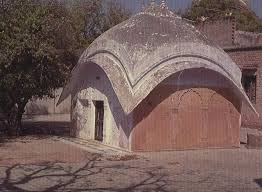The call to adventure takes us to faraway places in search of the divine elixir.
 |
| Carrying corn to market near Banteay Srea in Cambodia |
 |
| gods and demons churning ocean of milk for nectar |
Our hunt for nectar is quotidian; the gods and demons immortalized on the bas reliefs at Angkor struggled on a higher level, but the quest was the same. They wanted the elixir or immortality.
 |
| another depiction with gods headed by brahma on the right |
When I asked my old friend Goswami about the importance of this. I couldn't understand why this image is repeated so many times in all the temples I visited in Cambodia. He told me that everyone is looking for the elixir, and that the real amrita or nectar of immortalilty is rasa. Athato rasa jijnasa.
The sanskrit word "rasa" is an interesting word. It means "juice, essence, flavor, sentiment, the an essential mental state or the dominant emotional theme of a work of art, or the primary feeling that is evoked in a person when they experience a work of art, drama, music or literature."
 |
| Radha and Krishna, Rasa Dance, 19th Century Rajasthani Painting |
The poet Bharata Muni defined "rasa" in this way in the 2nd Century. Writing in the 15th Century, Rupa Goswami had a different understanding. He actually connected the idea of rasa with the concept of divine love, called, "Bhakti." His point was that there are different relationships with God in divine love.
 |
| Rupa Goswami Samadhi Mandir, Vrindavan India |
http://www.radiokrishna.com/rkc_archive_new/Books/ENG/The_Nectar_of_Devotion.pdf
He wrote a book about this called Bhakti Rasamrita Sindhu which means the "Ocean of rasik elixir that flows from divine love." I liked Goswami's explanation, as I often do.
At the same time, I can see that the churning of the ocean of milk has another theme: struggle. It's not just the nectar. It's also about the struggle for existence between good and evil, between gods and demons, devils and angels, our good side and our bad side. As we engage in the adventure of our own hero's journey, we struggle with different conflicts to discover our own immortality.
 |
| On the way to market in Cambodia. |
What we learn from experience is not always clear at first glance. I want to think I learned something from exploring far away places. Rene Descartes once observed that the only thing one learns by travel is that one becomes a stranger in his own land.
 |
| A photo about a photo of a stranger in a strange land |
The ancient empty courtyards of Jayavarman VII at Angkor remind us of the frailty of our own petro-civlization. His rule, a million strong in the valleys of the Tonle Sap, was destroyed by over-exploiting the water systems, over-building canals, over-reaching empire, exploitation.
 |
| Ruins at Angkor Thom, Bayon temple with faces of Jayavarman |
What will become of our own civilization? The Khmer lasted about 500 years. We've been going strong on oil since about 200 years now. Is it really possible to run everything at this level, with millions of cars sucking oil? How long can it last? And in the future, when the electricity is gone and there's no internet, what will archeologists make of our shopping malls and airports? Will they wonder at the purpose of all the wires and stainless steel, just as we wonder at their stone temples?
 |
| Happy home in Cambodia |
In the end, everyone wants to go home. At my journey's end, I was happy to return to my home in Mexico and my loving wife, Aurora. Is this the end of the adventure?
 |
| Benito Juarez Airport, Mexico City, home at last. |
 |
| It's good to be back |







No comments:
Post a Comment
Note: Only a member of this blog may post a comment.